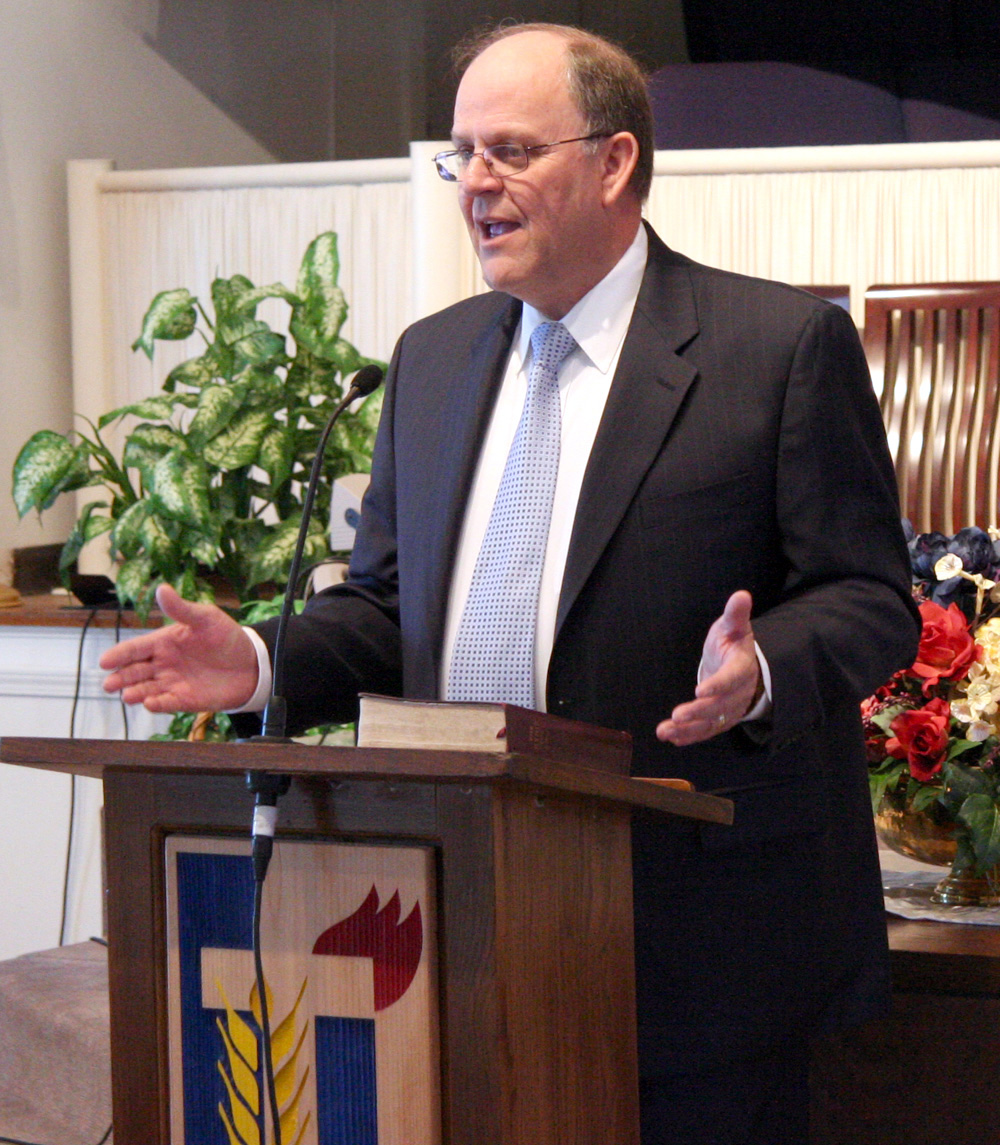
KANSAS CITY, Mo. (BP)–“Through our neglect of Jewish evangelism, I believe we have actually sinned against the Great Commission,” Jim Sibley, director of the Pasche Institute of Jewish Studies at Criswell College, said. “We have lost again this great conviction behind the Great Commission.”
Sibley was among the speakers at a two-day interfaith evangelism conference on Judaism sponsored by Midwestern Baptist Theological Seminary in Kansas City, Mo.
The former coordinator of Jewish evangelism with the North American Mission Board spoke from Romans chapter 1 on God’s intentional plan to incorporate Israel in the Great Commission. Sibley cited the Apostle Paul as a key example of someone ministering to Jews and non-Jews alike in accomplishing the Great Commission.
“If Paul is our model of [Gentile] ministry, then we have to acknowledge that both by precept and by practice Paul made it a priority for Jewish evangelism,” Sibley said.
Paul’s faithful outreach to the Jews is not only evidenced in Scripture through his repeated ministry to them, but it was his purpose in going –- the salvation of all mankind, Sibley said.
“It is the salvation of all men and women, boys and girls from every race and nation, tribe and people. God’s love and election of Israel was not because of His love for them over the Gentiles,” Sibley said. “It was because they would be the channel through which He would reach all the families of the earth.”
Midwestern President R. Philip Roberts concurred, noting, “Our denomination, seminaries and pastors must be educated on the strategic issues of Jewish evangelism because Jewish evangelism is so intrinsic to the fulfillment of the Great Commission.”
A proper perspective of the Jewish people in the Great Commission, Roberts added, could lead to other benefits.
“When our pastors and leaders teach God’s special plan for Jewish people in the Great Commission, this becomes our best way to respect Jewish people and to guard against anti-Semitism,” he said.
A five-member panel discussed a range of topics -– from Jewish historical thought to the evolving lifestyles of Jews in Israel and the United States -– to foster insight into reaching Jewish people with the Gospel of Jesus Christ.
Efraim Goldstein, head of the Israel branch of the Jews for Jesus ministry, voiced optimism for ministering in Israel, noting the openness of Jews to hearing the Gospel.
“Israel is not only one of the strategic places to be sharing the Gospel with other Jewish people but one of the open places,” Goldstein said. “Due to the nature of the people in Israel, secular Israelis are very curious and willing to have a discussion and listen because the Gospel has not been preached in Israel in Hebrew in any significant way.”
Due to complicated ethnic and social factors, Goldstein said, the Israeli population has been overlooked by evangelistic ministries to Arabs and other people groups in the Mideast.
Still, he said, “The secular Israeli community continues to be open and wants to hear the Gospel. They want to hear the Gospel because they consider themselves to be educated people and want to know what moves the Western world.”
Midwestern theology professor Tom Johnston underscored the importance “for evangelicals to be able to share the Gospel using only the Old Testament.”
“However … the Gospel must be presented in love, sensitivity, and boldness,” Johnston said.
The 45 participants at the March 24-25 workshop not only learned of the growing need to share Jesus Christ to an interested Jewish community, but they gained familiarity with the Jewish community by visiting the Friday evening services of five synagogues -– two Reformed, two Orthodox and one Conservative in the Kansas City metro area.
“It was an extremely impressive experience visiting the synagogue as they welcomed us to explore the grounds,” Midwestern student Dennis Roth said. “Despite their worship experience remaining totally different from a Protestant service, it was their genuine heart of worshiping Yahweh that was the most influential and long-lasting impression during our visit.”
–30–
Eight audio sessions of the MBTS Judaism workshop are available for downloading at www.mbts.edu/Resources. Audio CD recordings of the workshop also are available for $4 each plus $1.50 shipping and handling by contacting the MBTS Library at 1-800-944-6287.

















